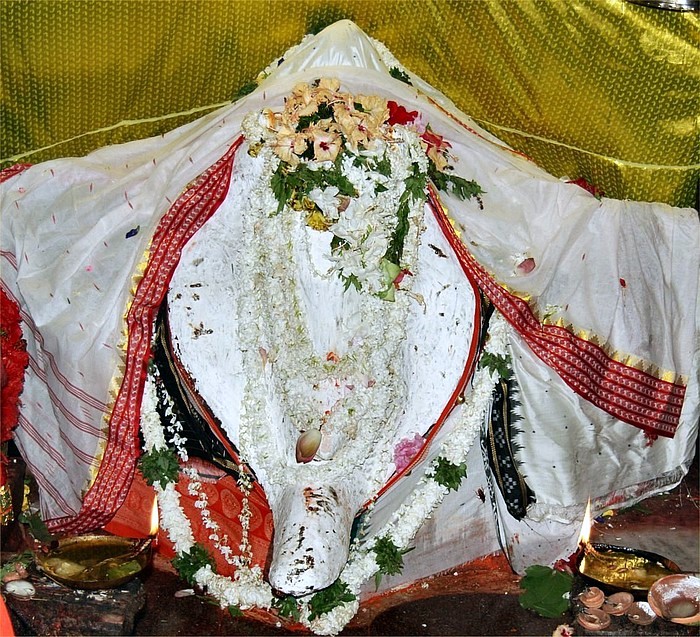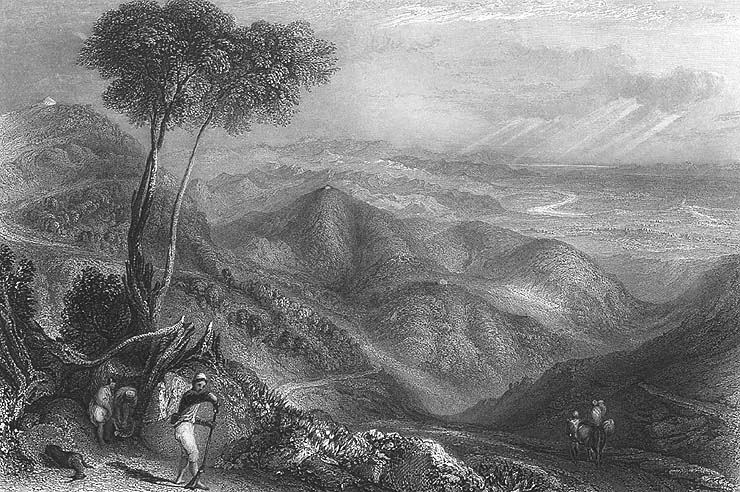|
Ibrahim Suhrawardy
Ibrahim Suhrawardy (1896-1971) was an Indian educationist, author and linguist from Balasore, Odisha. He is credited to have written the first English grammar books in Odia for the native students. He achieved high distinction in English studies in British India and taught many generations of students and scholars how western languages could be pursued to great educational advantage. Ibrahim was also the first muslim from Orissa province to have qualified the prestigious Indian Civil Services Examinations in 1921. He was one of the active Satyagrahis during the Inchudi Satyagraha movement in 1930. Family and education Qazi Syed Ibrahim Khalil Ullah Alqadri Suhrawardy was born into the Qadi family of Balasore to Qazi Syed Abdul Sattar Alqadri and his wife Muner un nisa Akhtar. From his father's side he was a direct descendant of the Persian theologian Abdul Qadir Jilani. His father was the Mukhtar of Balasore, while his mother, Begum Muner un nisa was the first cousin of Abdu ... [...More Info...] [...Related Items...] OR: [Wikipedia] [Google] [Baidu] |
Balasore
Balasore or Baleswara is a city in the state of Odisha, about north of the state capital Bhubaneswar and from Kolkata, in eastern India. It is the largest town of northern Odisha and the administrative headquarters of Balasore district. It is best known for Chandipur beach. It is also called 'missile city'. The Indian Ballistic Missile Defence Programme's Integrated Test Range is located 18 km south of Balasore. History Excavation at villages nearby by Balasore has given evidence for three distinct cultural phases of human settlements, viz., Chalcolithic (2000-1000 BCE), Iron Age (1000-400 BCE) and early historic period (400-200 BCE). Baleswara district was part of the ancient Kalinga kingdom which later became a territory of Utkal, till the death of Mukunda Deva. It was annexed by the Mughal Empire in 1568 and remained as a part of their suzerainty up until the 1700s. The British East India Company (EIC) established a factory at Balasore in 1633. In 1719, the Trie ... [...More Info...] [...Related Items...] OR: [Wikipedia] [Google] [Baidu] |
Qadi
A qāḍī ( ar, قاضي, Qāḍī; otherwise transliterated as qazi, cadi, kadi, or kazi) is the magistrate or judge of a '' sharīʿa'' court, who also exercises extrajudicial functions such as mediation, guardianship over orphans and minors, and supervision and auditing of public works. History The term ''qāḍī'' was in use from the time of Muhammad during the early history of Islam, and remained the term used for judges throughout Islamic history and the period of the caliphates. While the '' muftī'' and '' fuqaha'' played the role in elucidation of the principles of Islamic jurisprudence (''Uṣūl al-Fiqh'') and the Islamic law (''sharīʿa''), the ''qāḍī'' remained the key person ensuring the establishment of justice on the basis of these very laws and rules. Thus, the ''qāḍī'' was chosen from amongst those who had mastered the sciences of jurisprudence and law. The Abbasid caliphs created the office of "chief ''qāḍī''" (''qāḍī al-quḍāh''), who ... [...More Info...] [...Related Items...] OR: [Wikipedia] [Google] [Baidu] |
1896 Births
Events January–March * January 2 – The Jameson Raid comes to an end, as Jameson surrenders to the Boers. * January 4 – Utah is admitted as the 45th U.S. state. * January 5 – An Austrian newspaper reports that Wilhelm Röntgen has discovered a type of radiation (later known as X-rays). * January 6 – Cecil Rhodes is forced to resign as Prime Minister of the Cape of Good Hope, for his involvement in the Jameson Raid. * January 7 – American culinary expert Fannie Farmer publishes her first cookbook. * January 12 – H. L. Smith takes the first X-ray photograph. * January 17 – Fourth Anglo-Ashanti War: British redcoats enter the Ashanti capital, Kumasi, and Asantehene Agyeman Prempeh I is deposed. * January 18 – The X-ray machine is exhibited for the first time. * January 28 – Walter Arnold, of East Peckham, Kent, England, is fined 1 shilling for speeding at (exceeding the contemporary speed limit of , the first spee ... [...More Info...] [...Related Items...] OR: [Wikipedia] [Google] [Baidu] |
Nirmal Kumar Bose
Nirmal Kumar Bose (22 January 1901 – 15 October 1972) was a leading Indian anthropologist, who played a formative role in "building an Indian Tradition in Anthropology". A humanist scholar with a broad range of interests, he was also a leading sociologist, urbanist, Gandhian, and educationist. Also active in the Indian freedom struggle with Mahatma Gandhi, he was imprisoned in 1931 during the Salt Satyagraha. Early life He attended the Puri Zilla School, the Scottish Church College, and later the Presidency College, which was then affiliated with the University of Calcutta. He dropped out of the MSc program in geology as a gesture of solidarity with the Non-Cooperation Movement. Later he would earn an MSc degree in anthropology from the University of Calcutta. Career in anthropology Bose was originally from Kolkata. His anthropological work was founded on extensive field work and had a pragmatic prescriptive basis, and was considered radical against the background of ear ... [...More Info...] [...Related Items...] OR: [Wikipedia] [Google] [Baidu] |
Civil Disobedience Movement
The Salt March, also known as the Salt Satyagraha, Dandi March and the Dandi Satyagraha, was an act of nonviolent civil disobedience in colonial India led by Mahatma Gandhi. The twenty-four day march lasted from 12 March to 6 April 1930 as a direct action campaign of tax resistance and nonviolent protest against the British salt monopoly. Another reason for this march was that the Civil Disobedience Movement needed a strong inauguration that would inspire more people to follow Gandhi's example. Gandhi started this march with 78 of his trusted volunteers. The march spanned , from Sabarmati Ashram to Dandi, which was called Navsari at that time (now in the state of Gujarat). Growing numbers of Indians joined them along the way. When Gandhi broke the British Raj salt laws at 8:30 am on 6 April 1930, it sparked large scale acts of civil disobedience against the salt laws by millions of Indians. After making the salt by evaporation at Dandi, Gandhi continued southward along t ... [...More Info...] [...Related Items...] OR: [Wikipedia] [Google] [Baidu] |
Gopabandhu Choudhuri
Gopabandhu Choudhuri (also spelled Gopabandhu Choudhury; 8 May 1895 – 29 April 1958) was an Indian activist, social worker and freedom fighter. He participated in the Non-cooperation Movement, Civil Disobedience movement. Early life Gopabandhu Choudhuri was born to Gokulananda Choudhuri at the village of Kherasa, Jagatsinghpur District, Odisha. His father belonged to a landlord family and was an eminent advocate. His younger brother was Nabakrushna Choudhury who was Chief minister of Orissa. He graduated from Presidency College with B.A. in Mathematics in the year 1912. He got his master's degree from the same college in 1914 . In 1917 he got his preliminary law degree from the Calcutta University . After his education he joined the British Government as a deputy magistrate. Gopabandhu married Rama Devi, niece of Madhusudan Das on 1914. Indian Freedom Movement In 1921 after four years of working for British Government, he resigned from his job as of Deputy Magistrate . ... [...More Info...] [...Related Items...] OR: [Wikipedia] [Google] [Baidu] |
Puri Zilla School
Puri Zila School is a government high school and one of the oldest school in Odisha, India. It was established in 1853 in the holy city of Puri, located in Kundheibenta Sahi. The school moved to another building which later converted to Samanta Chandra Sekhara College, Puri. Puri Zila School moved to its current location on Station Road in 1958. It imparts teaching in humanities, social sciences, physical sciences etc. The school has indoor and outdoor games and sports facilities. Other societies and activities are NCC, Red Cross, Scouts and Guides. Noted alumni * Nirmal Kumar Bose, anthropologist * Gopabandhu Das, Freedom Fighter * Madhab Chandra Dash, Environmentalist * Kalindi Charan Panigrahi, poet * Sachidananda Routray, poet See also * Board of Secondary Education, Odisha * Badagada Government High School, Bhubaneswar * Capital High School, Bhubaneswar * Secondary Board High School The Secondary Board High School, Cuttack is an Indian Government high school in C ... [...More Info...] [...Related Items...] OR: [Wikipedia] [Google] [Baidu] |
Sambalpur
Sambalpur () is the fifth largest city in the Indian State of Odisha. It is located on the banks of river Mahanadi, with a population of 335,761 (as per 2011 census). Prehistoric settlements have been recorded there. It is the home of the Sambalpuri Saree. Overview The city contains many temples, historic buildings and parks. Educational institutes include Sambalpur University Sambalpur University is located in Burla town, of district Sambalpur, India, in the state of Odisha. Popularly known as Jyoti Vihar, it offers courses at the undergraduate and post-graduate levels. The governor of Odisha is the chancellor of ..., Veer Surendra Sai Institute of Medical Sciences and Research (VIMSAR), Veer Surendra Sai University of Technology (VSSUT), Gangadhar Meher University, Indian Institute of Management Sambalpur and Odisha State Open University (OSOU). Hirakud Dam, the longest earthen dam in the world and the largest artificial lake of Asia, is at Sambalpur. After the inde ... [...More Info...] [...Related Items...] OR: [Wikipedia] [Google] [Baidu] |
Non-cooperation Movement
The Non-cooperation movement was a political campaign launched on 4 September 1920, by Mahatma Gandhi to have Indians revoke their cooperation from the British government, with the aim of persuading them to grant self-governance.Noncooperation movement " ''Encyclopædia Britannica'', December 15, 2015. Retrieved 2021-08-10.Wright, Edmund, ed. 2006. non-cooperation (in British India) " ''A Dictionary of World History'' (2nd ed.). Oxford University Press. ISBN 9780192807007. This came as result of the |
Dehradun
Dehradun () is the capital and the most populous city of the Indian state of Uttarakhand. It is the administrative headquarters of the eponymous district and is governed by the Dehradun Municipal Corporation, with the Uttarakhand Legislative Assembly holding its winter sessions in the city as its winter capital. Part of the Garhwal region, and housing the headquarters of its Divisional Commissioner. Dehradun is one of the " Counter Magnets" of the National Capital Region (NCR) being developed as an alternative center of growth to help ease the migration and population explosion in the Delhi metropolitan area and to establish a smart city in the Himalayas. It is the third largest city in the Himalayas after Kathmandu and Srinagar. Dehradun is located in the Doon Valley on the foothills of the Himalayas nestled between Song river, a tributary of Ganga on the east and the Asan river, a tributary of Yamuna on the west. The city is noted for its picturesque landscape and slightly m ... [...More Info...] [...Related Items...] OR: [Wikipedia] [Google] [Baidu] |
Civil Services Of India
The Civil Services refer to the career government civil servants who are the permanent executive branch of the Republic of India. Elected cabinet ministers determine policy, and civil servants carry it out. Central Civil Servants are employees of the Government of India or of the states, but not all employees of the Government are civil servants. As of 2010, there were 6.4 million government employees in India but fewer than 50,000 civil servants to administer them. The agencies with the most personnel are with the Central Secretariat Service and Indian Revenue Service (IT and C&CE). The Government of India approved the formation of Indian Skill Development Service in 2015, and the Indian Enterprise Development Service in 2016. Further, the Cabinet of India approved merging all the central civil services under Indian Railways which are Indian Railway Accounts Service, Indian Railway Traffic Service, Indian Railway Personnel Service and Railway Protection Force Service into a ... [...More Info...] [...Related Items...] OR: [Wikipedia] [Google] [Baidu] |


.jpg)


